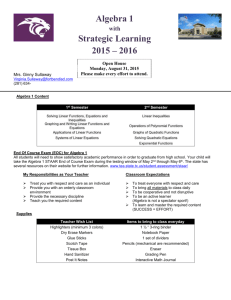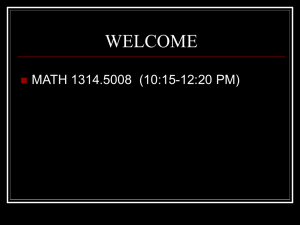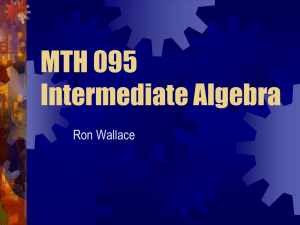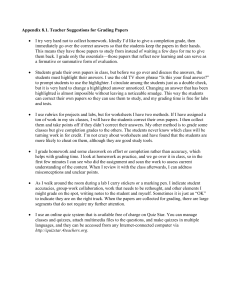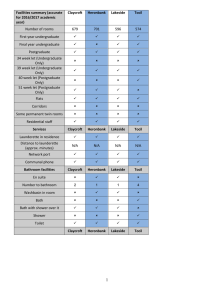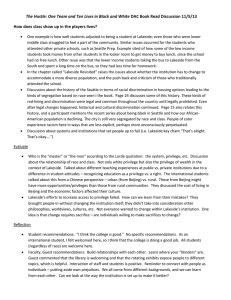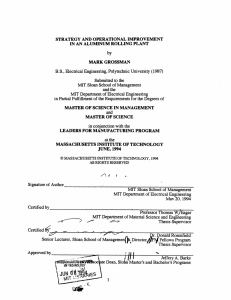course guidelines
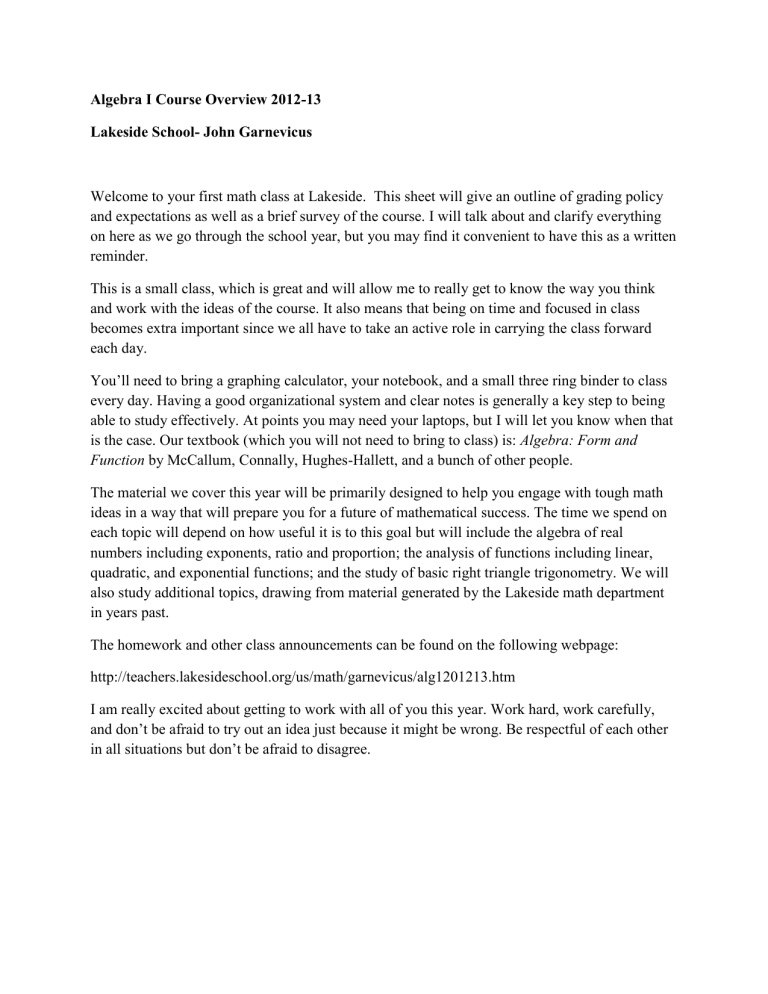
Algebra I Course Overview 2012-13
Lakeside School- John Garnevicus
Welcome to your first math class at Lakeside. This sheet will give an outline of grading policy and expectations as well as a brief survey of the course. I will talk about and clarify everything on here as we go through the school year, but you may find it convenient to have this as a written reminder.
This is a small class, which is great and will allow me to really get to know the way you think and work with the ideas of the course. It also means that being on time and focused in class becomes extra important since we all have to take an active role in carrying the class forward each day.
You’ll need to bring a graphing calculator, your notebook, and a small three ring binder to class every day. Having a good organizational system and clear notes is generally a key step to being able to study effectively. At points you may need your laptops, but I will let you know when that is the case. Our textbook (which you will not need to bring to class) is: Algebra: Form and
Function by McCallum, Connally, Hughes-Hallett, and a bunch of other people.
The material we cover this year will be primarily designed to help you engage with tough math ideas in a way that will prepare you for a future of mathematical success. The time we spend on each topic will depend on how useful it is to this goal but will include the algebra of real numbers including exponents, ratio and proportion; the analysis of functions including linear, quadratic, and exponential functions; and the study of basic right triangle trigonometry. We will also study additional topics, drawing from material generated by the Lakeside math department in years past.
The homework and other class announcements can be found on the following webpage: http://teachers.lakesideschool.org/us/math/garnevicus/alg1201213.htm
I am really excited about getting to work with all of you this year. Work hard, work carefully, and don’t be afraid to try out an idea just because it might be wrong. Be respectful of each other in all situations but don’t be afraid to disagree.
Grading in this course will be based on tests/projects, quizzes, homework, and class participation.
We will have a handful of tests each quarter, and may additionally have a few major projects over the year. These tests will consist of a large percentage of your grade, but quizzes and homework also play a significant role.
Quizzes will generally occur about once a week and will be largely stepping stones to the tests.
They’ll be brief and will highlight problems and concepts that are key to an overall understanding of the material- arrows to keep everyone focused on the main ideas. Sometimes they will be based directly on the homework problems that have been assigned.
Homework is a very important part of the course. Getting all of the correct answers is not as important as showing your work in a clear manner and giving a good attempt to every problem. I will collect a handful of problems two or three times a week for grading, and there will be additional problems listed for practice.
Participation is not just a measurement of how many times you raise your hand in class, but is also a measurement of how well you help the course run smoothly by paying attention, being on time, listening to your classmates, etc. I will not calculate participation into your numeric average, but it often comes into play when your average is between two grades.
Your numeric average will be calculated using the following percentages:
60% Tests/Projects
25% Homework
15% Quizzes
There will be a cumulative final exam at the end of the year which will be worth 15% of your total grade.
Extra Help: I am available during many periods of the day to go over questions you may have.
My schedule will be posted at my desk and can be found on the Souk, and my desk is in the math office on the second floor of Allen-Gates. The other members of the math department will also be happy to help you if I am not around. Additionally, peer tutors who have taken the course in past years are often available.

